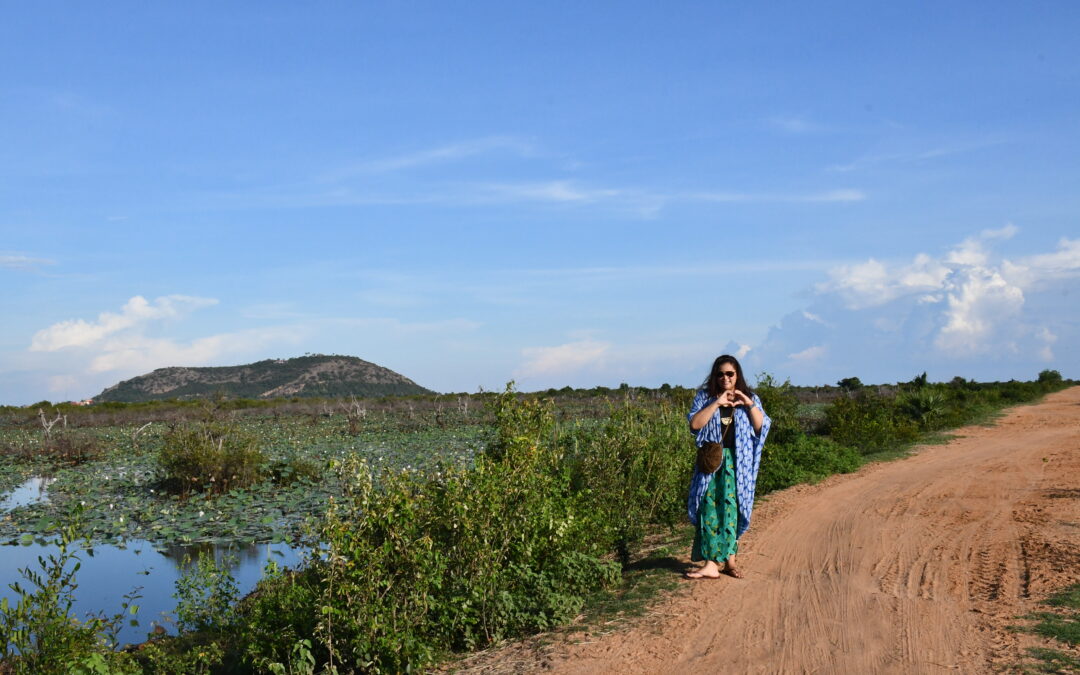Me: “I have my period.”
Male colleague: “AGAIN?”
Me: “Yes, it comes once a month.”
Male colleague: “It feels like you have it every day.”
Can I get a holler from my sisters who have endometriosis? It is not easy dealing with all the symptoms. But of course, you know that.
It is even harder dealing with it in a country that likes to pretend that periods don’t exist.
For five years, I lived in Cambodia, where periods are a taboo topic. Many women don’t know about the purpose of periods, or how to maintain proper hygiene, as they rely on information from their mothers, who may have received incorrect information themselves.
I first told my workmates that I had my period in early 2013. I was bent over in the office, wincing in pain and tapping my feet to try and alleviate the jackhammer in my stomach.
When my workmate asked what was wrong, I told him that I had my period.
“What’s that?” he asked me.
I explained it to him, and the look of disgust on his face has never left me. Despite having a mother and three sisters, he couldn’t comprehend that I was talking openly about my period, or endometriosis. He didn’t say anything, instead, choosing to leave the room for a while. Perhaps to ponder how he ended up with me as a workmate? I’ll never know.
For the first fourteen months of living in Cambodia, I only had access to a bicycle. Riding a bicycle to work, to the grocery store and to hang out with friends was great exercise. However, when it came to that time of the month when I had my period, I couldn’t bear to hop on. A journey that normally took me five minutes would take me 10. If I ran out of pads, I would have to ride 15 minutes into town to purchase them from the ‘Western’ grocery store and avoid eye contact with the person on the cash register who was secretly judging me for being a woman.
When I bought a motorbike, travelling whilst on my period became a more pleasant journey, though my pain wasn’t alleviated. I would drive my motorbike hunched over, nose scrunched up, body swaying back and forth to cope with the intense pain. But nothing helped.
Since the pain wasn’t subduing, I decided I needed to be very open about my endometriosis with my mostly male workmates, so they could understand the reason I was more impatient than usual once a month. Every month, I would tell them that my period had arrived and explained the symptoms to them. Well, half explained, half cried. For a couple of years, they would shy away (or sometimes, run away) from the conversation, not believing that this Australian woman was openly talking about the blood that was coming out of her. However, I persisted. Periods, as unpleasant as they are, are a normal part of life.
Eventually, I got through to them.
Me: “I am getting my period.”
Colleague: “Okay, stay home tomorrow.”
“I now understand about periods. They are so bad. When my future wife gets her period, I will make her rest for three days.” – Colleague.
Me: “I have stomach pains. Am I getting my period?”
Workmate: *Looks at watch* “Yes, I think you had it one month ago.”
Hearing about my period and endometriosis became such a normal part of life for my team, that when I suggested we include period education in our sewing classes, and books about periods in our library, they didn’t resist. They welcomed this addition and agreed that it was important to educate the community about periods.
My time in Cambodia taught me that the best way for me to deal with the pain of endometriosis was to be open with it. I am never going to be ashamed of the condition, and the more awareness we have around it, the more people will understand what ten percent of the female population goes through.
And to keep up with routine, I still email those amazing male colleagues once a month to tell them I have my period.
Sally Hetherington OAM

